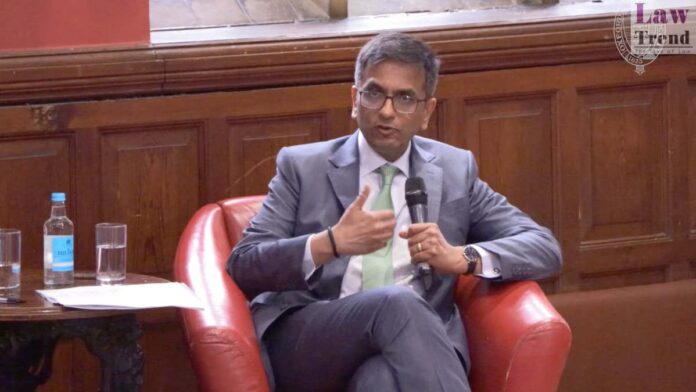Former Chief Justice of India, DY Chandrachud, has clarified that his previous remarks about seeking divine assistance to resolve the Ayodhya dispute were greatly misunderstood. In an exclusive interview with ANI, Justice Chandrachud emphasized that his reference to prayer and meditation was in the context of maintaining personal calm and resilience, not about influencing judicial decisions.
The controversy arose from a brief comment made during a visit to his native village, Kanersar, where he discussed his daily practices for maintaining peace amidst the stressful demands of his judicial responsibilities. “It was about how I start my day with prayer to sustain my calm, not about seeking divine intervention in judgments,” Chandrachud stated, asserting that the legal and constitutional frameworks remain the bedrock of all judicial verdicts, including the landmark Ayodhya case.
Chandrachud further explained that being a person of faith does not compromise a judge’s ability to adjudicate fairly and impartially. “A judge does not have to be an atheist to be unbiased. We are trained to apply the law uniformly, regardless of our personal beliefs,” he remarked.
In November 2019, the Supreme Court delivered a unanimous verdict in the Ayodhya case, ruling in favor of Ram Lalla and ordering that the disputed land be handed over to a trust for the construction of a Ram temple. The bench, aware of the sensitive nature of the case, decided not to attribute the authorship of the judgment to any single judge to maintain unity and collective responsibility.
Justice Chandrachud’s clarification comes in the wake of misrepresentations on social media, highlighting the challenges public figures often face regarding out-of-context quotes. He stressed the importance of understanding the nuanced roles judges play in resolving complex and emotive disputes, underlining that their judgments are grounded in the principles of law and justice, not personal religious practices.




